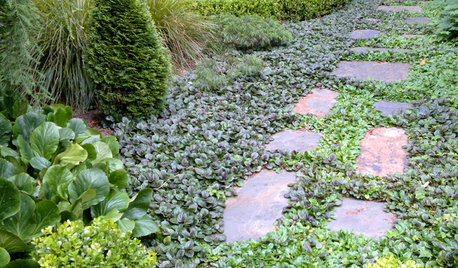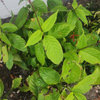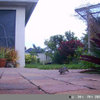Questions on Coffee Grounds
manature
15 years ago
Related Stories

KITCHEN DESIGN9 Questions to Ask When Planning a Kitchen Pantry
Avoid blunders and get the storage space and layout you need by asking these questions before you begin
Full Story
DOORS5 Questions to Ask Before Installing a Barn Door
Find out whether that barn door you love is the right solution for your space
Full Story
MOST POPULAR8 Questions to Ask Yourself Before Meeting With Your Designer
Thinking in advance about how you use your space will get your first design consultation off to its best start
Full Story
COFFEE WITH AN ARCHITECTA Quiz for Architects in Question
Should you trade in your T-square for a barista tray? Answer a few simple questions to find out
Full Story
DECORATING GUIDESNo Neutral Ground? Why the Color Camps Are So Opinionated
Can't we all just get along when it comes to color versus neutrals?
Full Story
GROUND COVERSGround Force: 10 Top Ground Covers for Your Garden
Protect your soil from weeds and drought this summer with a living mulch of ground covers
Full Story
Today's Question: TV Fireplace Dilemma
Should the TV Go Above the Fireplace — or Not? Have Your Say!
Full Story
REMODELING GUIDES13 Essential Questions to Ask Yourself Before Tackling a Renovation
No one knows you better than yourself, so to get the remodel you truly want, consider these questions first
Full Story
FEEL-GOOD HOMEThe Question That Can Make You Love Your Home More
Change your relationship with your house for the better by focusing on the answer to something designers often ask
Full Story
REMODELING GUIDESConsidering a Fixer-Upper? 15 Questions to Ask First
Learn about the hidden costs and treasures of older homes to avoid budget surprises and accidentally tossing valuable features
Full StoryMore Discussions








katkin_gw
chrisd_fl
Related Professionals
West Milford Landscape Architects & Landscape Designers · Salem Landscape Architects & Landscape Designers · East Lake-Orient Park Landscape Contractors · Hurricane Landscape Contractors · Louisville Landscape Contractors · Mount Kisco Landscape Contractors · Thonotosassa Landscape Contractors · Castle Rock Decks, Patios & Outdoor Enclosures · Foothill Farms Decks, Patios & Outdoor Enclosures · Garden City Decks, Patios & Outdoor Enclosures · Highland Springs Decks, Patios & Outdoor Enclosures · Liberty Decks, Patios & Outdoor Enclosures · Annapolis Siding & Exteriors · Manassas Siding & Exteriors · Spartanburg Siding & ExteriorsmanatureOriginal Author
corrie22
tomncath
countrynest
babalu_aye
cindeea
corrie22
mboston_gw
manatureOriginal Author
katkin_gw
gatormomx2
manatureOriginal Author
minibim
manatureOriginal Author
wanda662
dghays
bluesky7
Tom
minibim
manatureOriginal Author
goldenpond
manatureOriginal Author
minibim
minibim
gatormomx2
pati33334
carolb_w_fl_coastal_9b
Michael AKA Leekle2ManE
regine_Z 10 Fl gw
pati33334
plantsman56